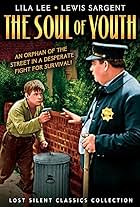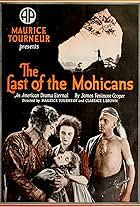Fante-Anne is one of the first professionally made Norwegian movies, and is called "The mother of all Norwegian movies". The film actually started off an important wave of great Norwegian movies. The first of quite few periods Norwegian movies really fully was at an international level, as it is again now, getting international acclamation.
I just watched the newly restored version, which actually is the second restoration made in 1964 on a previous DVD-version. Now with new and better text posters (originally with Swedish text posters!) and new sound put on. Music especially made Haldor Krogh and played by the Norwegian Broadcasting Orchestra. The digital remastered restoration is made by the National Library of Norway, and is now available on DVD and Blu-Ray.
The film was first aired on TV in Norway November 9th 2012, 92 years after it's first release, and is writing this the same day. It's been on a DVD-version before this, but nothing like as complete as this.
We meet up with Anne, which is a wild child, at least compared to her brother, at the main farm in the village, Storlien. She gets him into trouble over and over. And one day she understands that she doesn't really belong in the family.
She is told by a farming boy, Jon Sandbakken, that she really is an orphan, and that her mother came sick to the door on this remote farm, carrying baby Anne in her arms. They were allowed to sleep in the barn, but the morning after they find the mother has passed away, lying beside the crying baby Anne. She grows up to become an attractive woman, and Jon increasingly interested, and decides to make a pass at her. He doesn't succeed, as he instead insults her by making a remark that she really is not a part of the farm.
At the same time Haldor shows his interest; at the same time as gossip goes warm in the village, and Haldor's mother doesn't like the idea of them being together, and rather wants him to marry rich. This seems awfully wrong for most.
I find the story remarkably engrossing and well told. Of course it's back in 1920, and the actors are often playing like they are on a stage. They were almost all actors from the Norwegian Theatre. But the instruction is often very modern, and so is the cinematography work. It's really a very professionally made, and stands nothing back for other movies made back then.
The music is perfectly fitted to the story, presumably better than it originally would have been with a piano or organ in a cinema back in the silent movie era. The music really adds a great feeling to the film. The restoration is fabulous from the original acetate, and still taking care of the original feel. It's a completely new from ground restoration; which has kept and enhanced the color tones from the original black-and-white footage.
Fante-Anne is a very well told and interesting story, and this not only seen as a document of the time and of old time farming life in Norway. The great quality of the filming, acting and narration, as well as nothing is given away too early. It's really a pleasure to watch, with a well driven plot, and a nerve which is really rare for the time.
A great watch!














